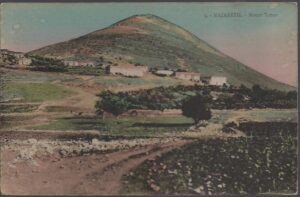Why Some Tribes Answered the Call and Others Did Not
The Song of Deborah (Judges 5) is one of the most powerful pieces of poetry in the entire Bible. A prose version repeats the same story, with many variations, in Judges 4. The account tells of the deliverer (Judge) Deborah and her reluctant general Barak, who do battle against an alliance of Canaanite kings. The story takes place after the Exodus from Egypt and before the institution of the monarchy, during the time we call the settlement period—in Biblical terms, the period of the Judges.
From the prose account in Judges 4, we learn that the kings of Canaan are led by Jabin, who is identified as the king of Hazor (Judges 4-2, 18, 12). Jabin’s commander is a man named Sisera (Judges 4-2). The war leader Deborah, who lived and judged in Ephraim, summons Barak of the tribe of Naphtali to muster 10,000 men and engage Sisera in battle at Mt. Tabor. Barak replies that he will respect her summons only if Deborah goes with him. Deborah agrees, but declares that the glory of victory will be denied Barak personally—the enemy commander Sisera will be delivered not into Barak’s hands, but into the hands of a woman (Judges 4-4–9).
Read the rest of The Song of Deborah in the online Biblical Archaeology Society Library.
